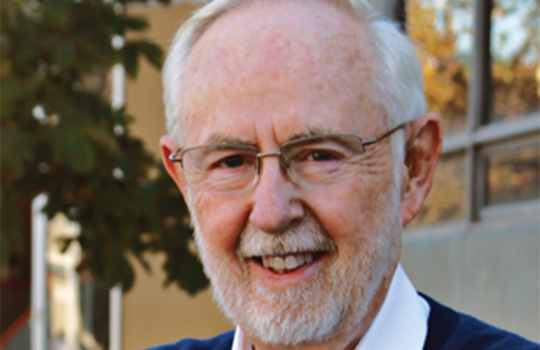Free Public Lecture, Thursday, August 14, 7:30 p.m., Ramsey Auditorium, Fermilab
Reservations required: Call 630-840-8720 to reserve free tickets
Batavia, Ill.-“Before we had the Web,” said Fermilab physicist Irwin Gaines, “we didn’t know we needed it. I don’t think we can even dream of what we’ll be able to do with the Grid.”
There is a revolution ahead in the way people everywhere use computer technology to solve the most complex computational problems. The vision for the rapidly developing international Data Grid is to put the power of the world’s computing capacity at the fingertips of everyone with a laptop computer.
On Thursday, August 14, at 7:30 p.m., the Department of Energy’s Fermi National Accelerator Laboratory in Batavia, Illinois, will sponsor a free public lecture, “Extreme Computing: The Data Grid and the Future of Distributed Computing,” by six internationally known pioneers of emerging Grid technology:
- Dr. Ian Foster, co-author of “The Grid: Blueprint for a New Computing Infrastructure,” Associate Director of the Mathematics and Computer Science Division at the Department of Energy’s Argonne National Laboratory and Professor of Computer Science at the University of Chicago
- Dr. Ian Bird, of CERN, Project Manager for LHC Computing Grid, at CERN, the European Laboratory for Particle Physics
- Robert J. Aiken, Director of Academic Research and Technology Initiatives, Cisco Systems, Inc.
- Dr. Stephen Perrenod, Group Manager, High Performance Computer Marketing, Sun Microsystems
- Dr. David Martin, Program Director, Internet Standards and Technology, IBM
- Dr. Daniel Reed, Director, National Center for Supercomputing Applications, University of Illinois at Urbana-Champaign.
Speakers will present the state of the art and the outlook for the future of Grid computing from their own very different perspectives.
In the 1990s, the Web made the Internet a huge system for finding and retrieving all kinds of information. Grid technology takes the next step, pooling computing power over the Internet, linking and managing global computing resources for solving the fantastically challenging computer problems of particle physics and astrophysics, climate modeling, genetics, earthquake simulation, brain research and other fields of science. Supported by the National Science Foundation and the Department of Energy’s Office of Science, U.S. scientists are collaborating with colleagues around the world to develop the open-source software, the infrastructure and the standards to make the Grid a reality. Fermilab has achieved the first working Data Grids for physics in the United States.
Note to Reporters: Speakers will be available to meet with the members of the press at a pre-lecture buffet at 6:30 p.m. in the One North Conference Room of Fermilab’s Wilson Hall.
For more information: http://conferences.fnal.gov/lp2003/bulletins/grid_new.html
How to get to Fermilab: http://www.fnal.gov/pub/visiting/hours/index.html

